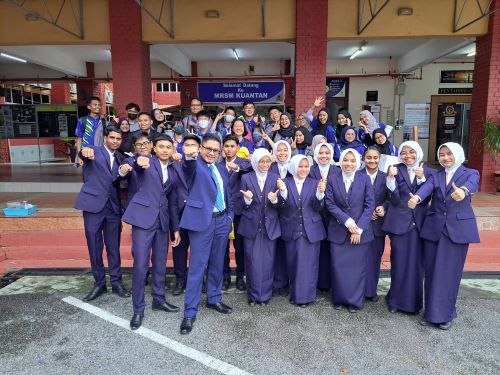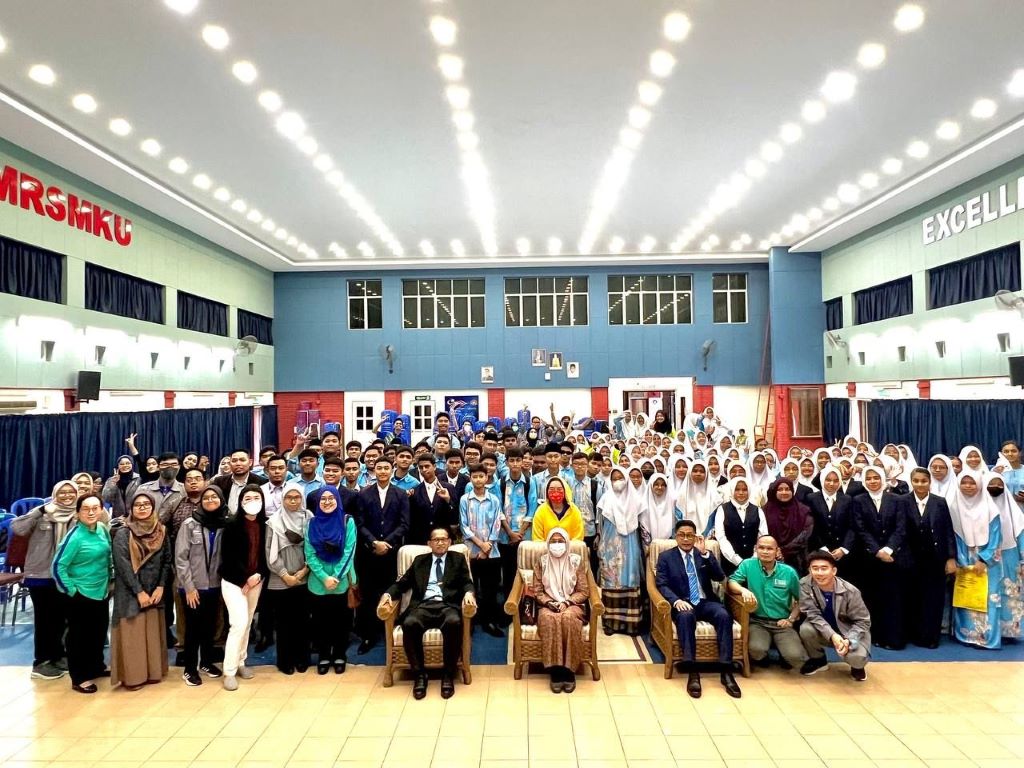SULAM UMP programme shares importance of microbes in biotechnology industry
KUANTAN, 26 January 2023 - The entire world is affected by the emergence of the COVID-19 outbreak, and to date, 48.6 million people have been infected and claimed more than 6 million lives in just two years.
The infection is caused by a minute virus, SARS-CoV-2, and cannot be seen with the naked eye.
To understand this field, Universiti Malaysia Pahang (UMP) implemented the Service Learning Malaysia-University for Society (SULAM) Programme to support the efforts of the Ministry of Higher Education (MOHE).
The programme organisation, in collaboration with the Faculty of Industrial Science and Technology (FSTI) with the title ‘Who’s That Pokemon? We Catch Them All’, provided exposure to the importance of microbes in the biotechnology industry to attract the younger generation to explore the fields offered by UMP.
Present at the event were the Assistant Vice-Chancellor, Industrial and Community Collaboration Division, Associate Professor Ir. Dr. Nurul Hazlina Noordin, Principal of MARA Science Junior College (MRSM) Kuantan, Mohd Zaki Ab. Rashid, Dean of FSTI, Ts. Dr. Saiful Kamaluddin Muzakir@Lokman and Programme Director, Dr. Hajar Fauzan Ahmad.
According to Associate Professor Ir. Dr. Nurul Hazlina, in early 2020, the COVID-19 outbreak affected the economy, health and lives of people not only in Malaysia but also around the world.
“The SARS-CoV-2 virus of 0.1 micrometers is the cause of the COVID-19 outbreak.
“However, some of us are unaware of the important role that microbes have long played in our daily activities,” she said.
“In the biotechnology industry, microbes are used intensively at every level, whether for the production of goods such as food, vaccines and also used in large-scale fermentation operations involving the production of raw materials such as bioethanol that can be used as renewable energy,” she said.
Furthermore, she said, microbes also contribute to the ecology and natural diversity.
“As a result, several microbial analysis techniques have been developed to provide a deeper understanding of the purpose and importance of microbes around us,” she said.
The programme also provided an opportunity for UMP students to conduct community service programme by organising activities with school students to deepen knowledge related to microbes to the genome level.
Through the initiative, school students were also exposed to the importance of the sequencing process to understand the ability of a microbe to carry out its functions.

The SULAM programme is a method of teaching and learning that combines course learning objectives with community service that involves students interacting with the community to solve local problems using the knowledge and skills they learn in the lecture room.
Also held were briefings on bacterial genome sequencing by students, demonstration sessions and microbes exhibition in the booth around the school hall.
By: Mimi Rabita Abdul Wahit, Corporate Communications Division, Chancellery Department
Translation by: Dr. Rozaimi Abu Samah, Engineering College/Faculty of Chemical and Process Engineering Technology
- 57 views










